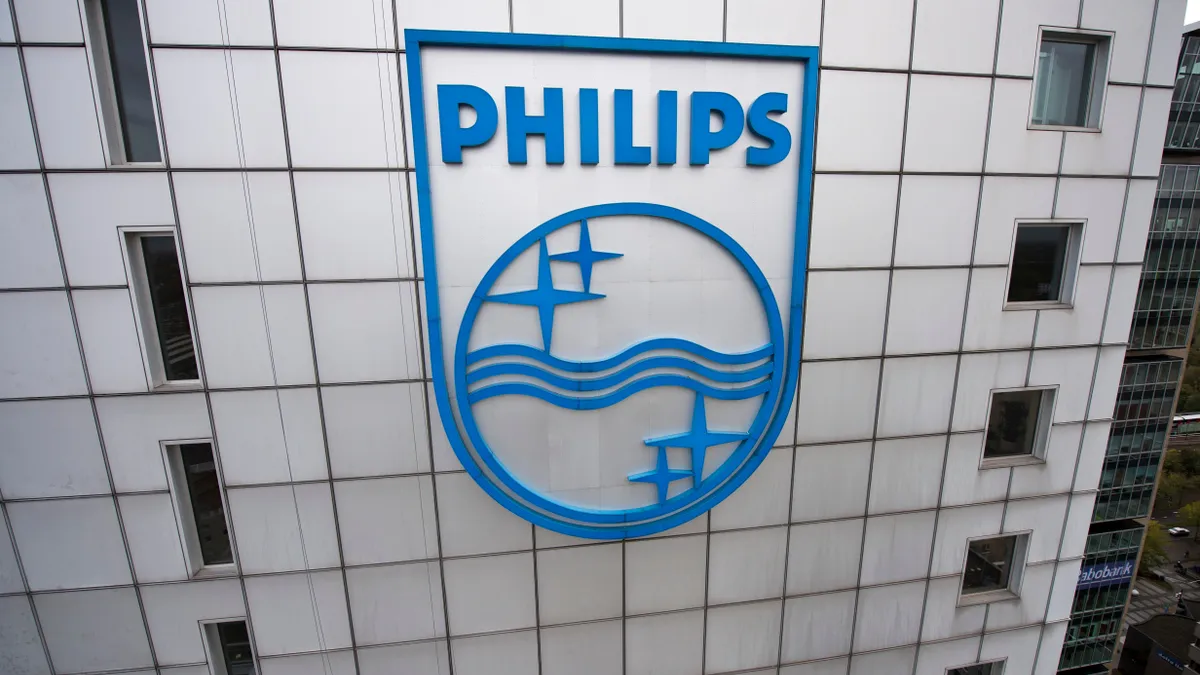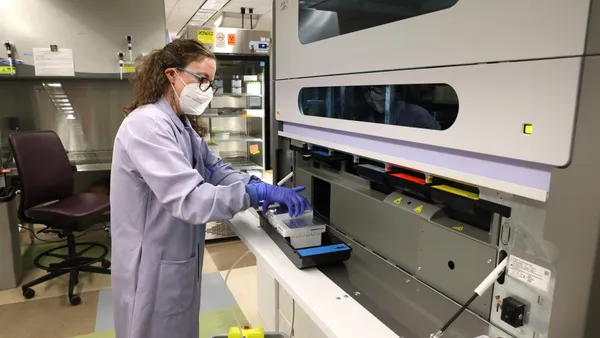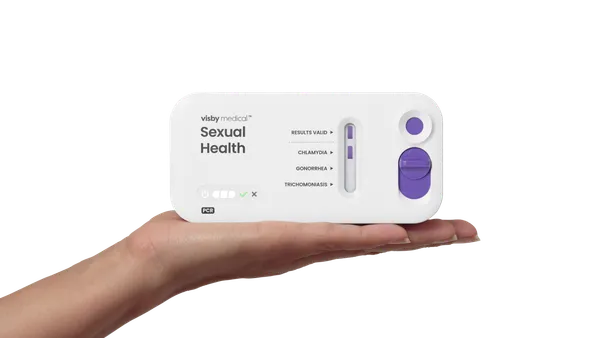Dive Brief:
- Philips plans to begin offering Paige AI's prostate cancer detection technology alongside its own digital pathology products, the medtech giant announced Thursday.
- Spun out from technology developed at Memorial Sloan Kettering Cancer Center, startup Paige.AI received FDA's breakthrough device designation in March and a CE mark for its Paige Prostate AI-based module last month.
- Philips said it will begin offering the Paige product to European pathology labs in 2020. "AI solutions for other markets and additional disease areas are expected to follow suit," the company said in its announcement.
Dive Insight:
The venture with Philips should help Paige more quickly expand awareness and adoption of its technology.
Under Paige.AI's 2018 licensing agreement with MSK, the company receives de-identified images of digitized slides to help it develop artificial intelligence tools that can assist pathologists in identifying cancer. In terms of bringing an FDA-authorized product to the U.S. market, Paige CEO Leo Grady said in March the company planned to begin with prostate cancer and expand from there.
FDA cleared the Philips IntelliSite Pathology Solution under its De Novo pathway in 2017. The product is the first whole-slide imaging system with digital surgical pathology slide review features to come to market in the U.S. Combined with the Paige Prostate, it's designed for an "end-to-end oncology workflow," Philips said.
Philips plans to offer Paige Prostate to European pathology labs beginning in 2020. AI solutions for other markets and additional disease areas are expected to follow suit.
Although Philips does not break out figures for its pathology business, in its 2019 third quarter, Philips' Diagnosis and Treatment unit posted comparable sales growth of 9%, versus 6% in the same quarter the year prior. The company also reported high single-digit growth in diagnostic imaging and image-guided therapy but said orders were flat compared to the third quarter of 2018.
The medical field is increasingly incorporating AI to assist with diagnoses and speed workflow. A study published in The Lancet Digital Health journal earlier this year showed AI can detect diseases from medical imaging with the same accuracy as healthcare professionals.
Recently, Medtronic rolled out an AI-assisted colonoscopy system in Europe and Hologic introduced an AI-powered add-on to its 3D mammography technology designed to cut radiology review times by reconstructing images into larger slices.














